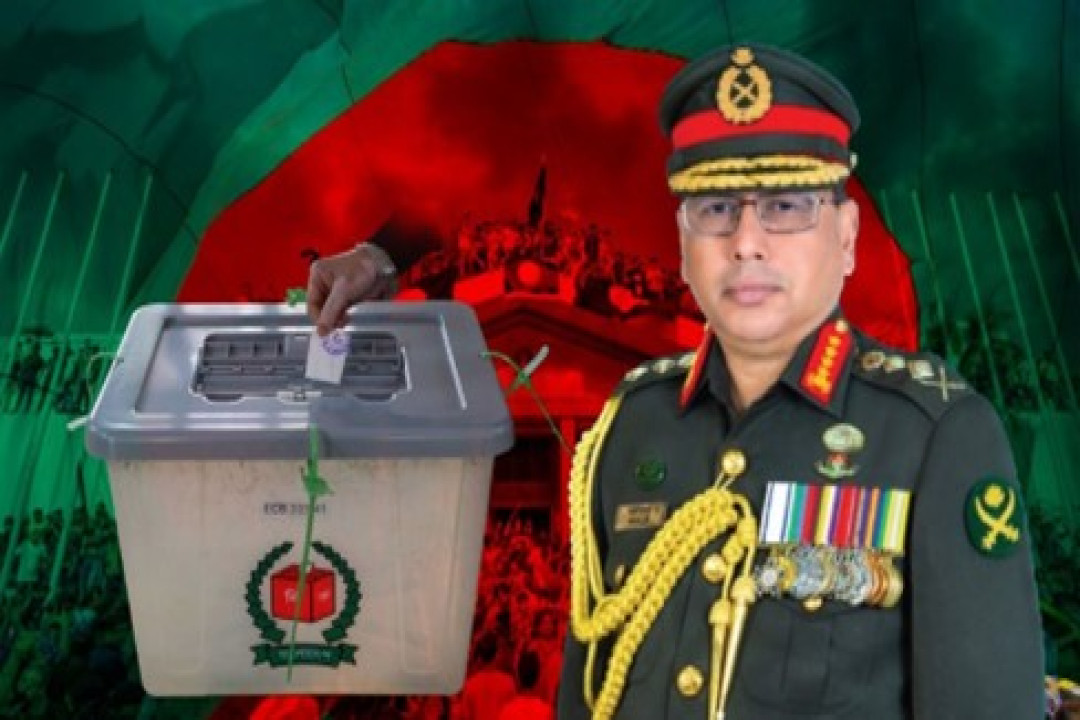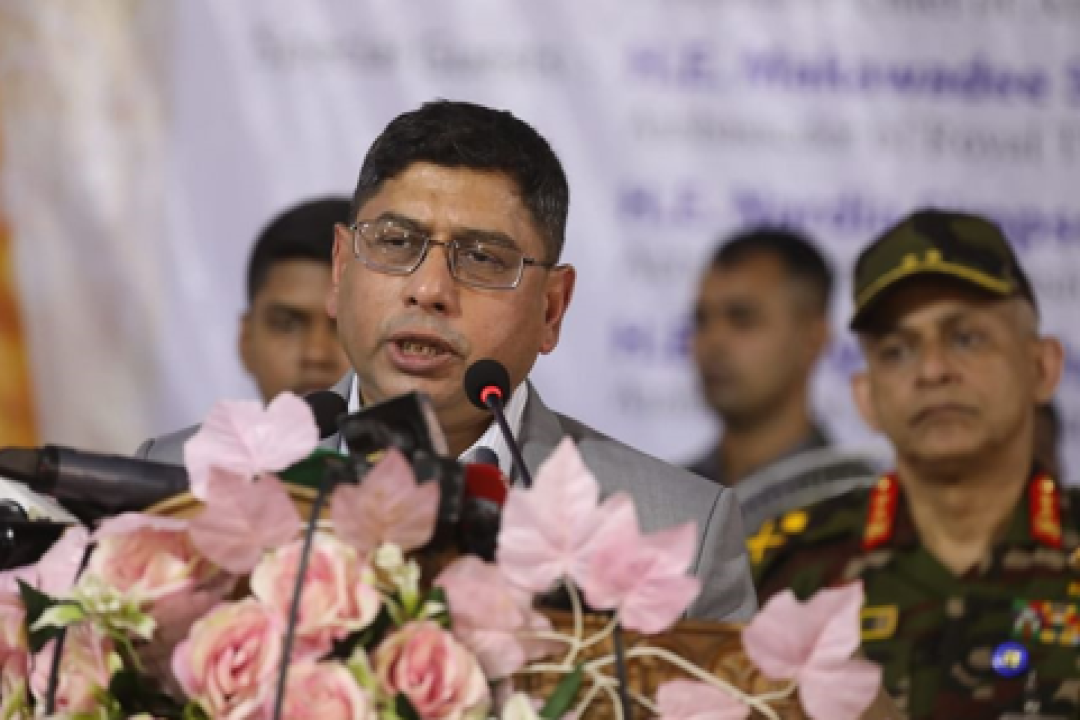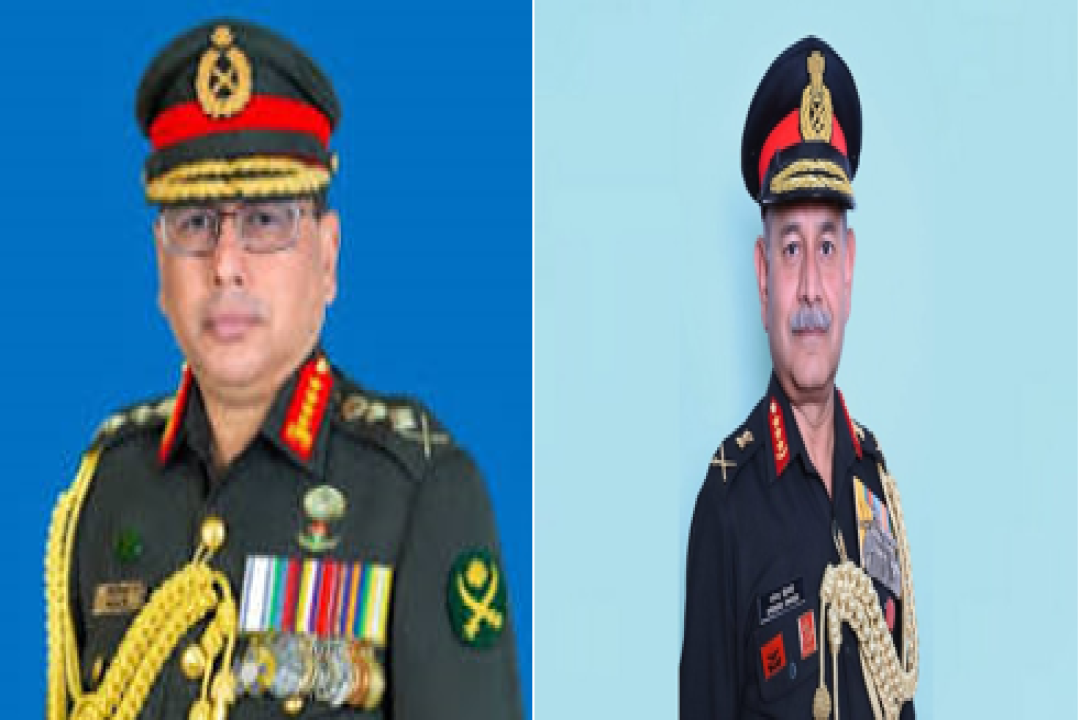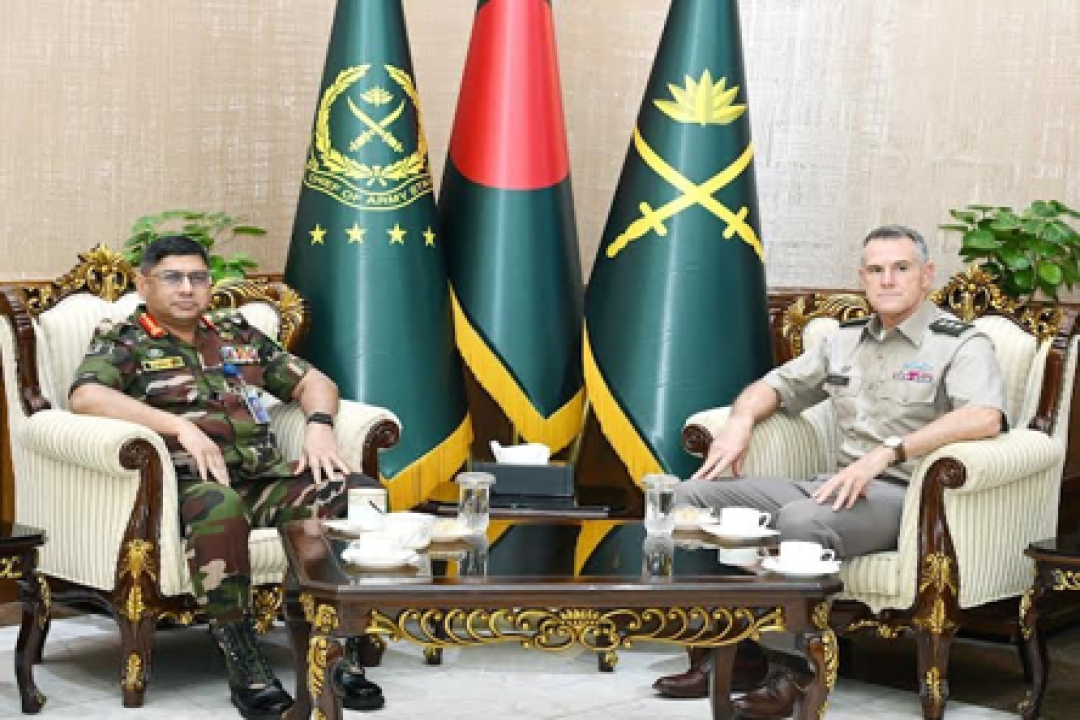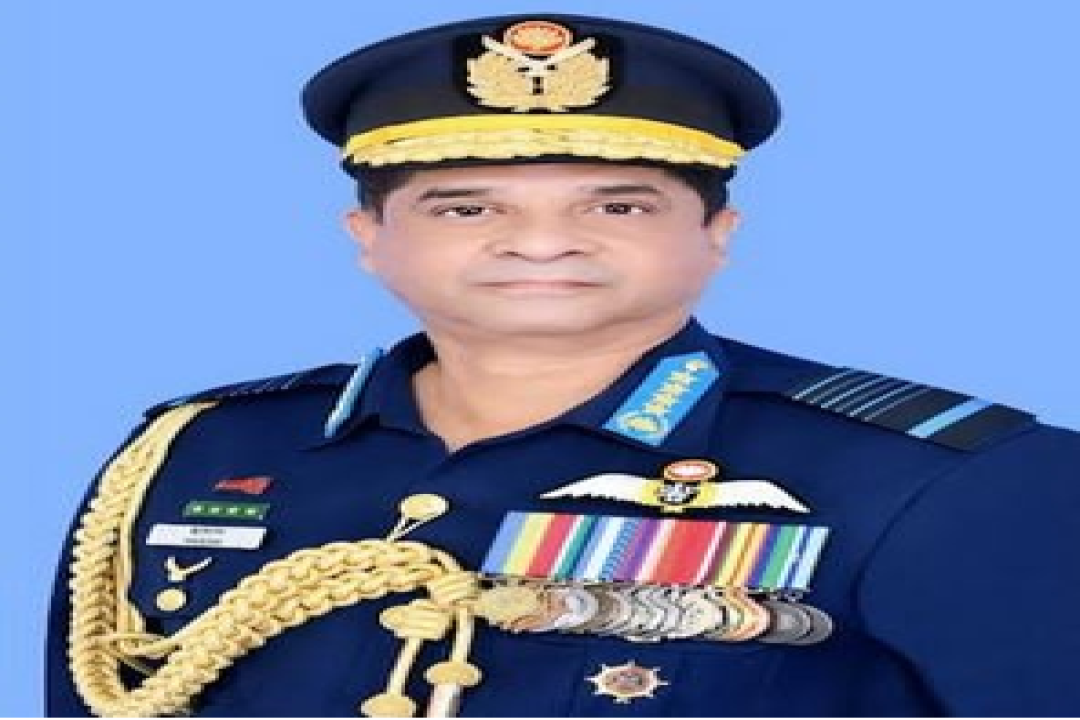With the downfall of Sheikh Hasina’s autocratic regime, the interim government under the leadership of Professor Dr Muhammad Yunus took the office to run Bangladesh amid a student-led mass revolution on August 8, 2024. Since then, one of the key questions on people’s minds has been the timeline for the transition to democracy.
The issue of the next general election - which has gained further significant attention following the recent remarks made by the chief of Army General Waker-Uz-Zaman saying, “I will support Dr. Muhammad Yunus’s interim government in holding elections within the next 18 months.”
The army chief also vowed to back the country’s interim government “come what may” to help it complete key reforms before the election. General Waker-Uz-Zaman and his troops, notably, stood aside in early August amid raging student-led protests against Hasina, sealing the fate of the autocrat who was forced to resign after 15 years in power and fled to India.
In a rare interview with news agency Reuters on September 24, the army chief underscored Bangladesh should return to electoral democracy within one-and-a-half years. He said that he will support the interim government in carrying out the reforms and that the Bangladesh Army will be “professional” and stay away from politics. “If you ask me, then I will say that should be the time frame by which we should enter into a democratic process,” said the army chief.
General Waker-Uz-Zaman pointed out that he enjoys “very good relations” with Chief Adviser Professor Dr. Yunus and added, “I’m sure that if we work together, there is no reason why we should fail.” He assured that the military's role is to support the government’s efforts to stabilize the country.
It is noted, more than 1,500 people were killed in the anti-Hasina uprising - the bloodiest period in the country’s independent history. Calm has returned to most of the cities including Dhaka. But some parts of the civil service are not yet properly functional. The army has stepped up to carry out law and order duties nationwide while much of the police forces, numbering around 190,000 personnel, still in disarray.
Despite the army’s active role in ensuring stability in the country, the army chief firmly stated that the Army would not engage in political affairs. “I will not do anything that harms my force. I am a professional soldier, and I want to keep the Army professional,” he asserted. He also noted that some military personnel who acted outside their duties under the previous administration have been disciplined, though he did not elaborate on specific actions taken.
Looking ahead, he expressed a vision for keeping the military distinct from political structures. He suggested that future constitutional reforms might allow the armed forces to report directly to the President instead of being under the Prime Minister’s control through the Ministry of Defence, as is currently the case.
“Military institutions should never be used for political interests, and soldiers should not be involved in politics,” the army chief added, reaffirming his commitment to maintaining the professionalism and neutrality of the Bangladesh Army.
The Chief Adviser Professor Dr. Muhammad Yunus, meanwhile, has expressed his determination to advance reform and hold an elect ion quickly. Dr. Yunus made the remarks in an interview with Tokyo-based news outlet NHK WORLD in New York, where he went to attend the United Nations General Assembly, it reports on September 29, 2024. He said the interim government’s job is to carry out reform as quickly as possible, and that the government will hold an election as soon as it is ready. He, however, has yet to come up with a specific timeline for the return of electoral democracy in Bangladesh.
The interim government has set up six commissions to oversee reforms in critical areas, including the Election Commission, judiciary, and law enforcement. These commissions have already began their work, with final reports anticipated by January 1, 2015.
Most of the political parties responded to the army chief’s timeframe for the election with a positive notes. BNP Secretary-General Mirza Fakhrul Islam Alamgir reacted positively about the timeline. “The sooner the election, the better for the nation,” he stated, emphasizing that public involvement in the reform process is crucial and that timely elections are essential for progress.
It is understandable, if the government can hold free, fair, acceptable, and participatory elections within 18 months, it will enhance its image. As the political parties mainly focus on reforms and elections, the general people of Bangladesh seek good governance, public safety, and improvements in the country’s socio-economic conditions. If the government can deliver on these fronts, the people may agree to give more time to hold the election.
However, the army chief’s pledge to extend his full support for the Dr. Yunus-led interim government to attain its goals should leave no doubt that the military will be a stabilizing factor helping the incumbent succeed in its mission. The military support for the interim government has been solidified by the army chief.
November 24, 2024
Dhaka set to sign defense deal with TokyoNovember 24, 2024
Magistracy power for officers of Armed Forces for another 60 daysNovember 24, 2024
Government to decide how long army will remain deployed in the fieldNovember 24, 2024
Army recovers huge cache of arms, ammunition from KNF denNovember 24, 2024
Army cautions against misuse of its name in jhut business: ISPRNovember 24, 2024
Singapore’s high commissioner meets Army ChiefNovember 24, 2024
Army chief visits Cox’s BazarNovember 24, 2024
65 citizens from Myanmar's tribal communities enter Bangladesh illegallyNovember 24, 2024
Who is Trump intelligence pick Tulsi Gabbard?November 24, 2024
Pentagon stunned after Trump picks Pete Hegseth for Defense SecretaryNovember 24, 2024
Ukraine marks 1,000 days of war with pledge to ‘never submit’ to RussiaNovember 24, 2024
Arrest warrants issued for Netanyahu, Gallant over war crimesNovember 11, 2024
Deputy Commander of US Indo-Pacific Command calls on Army ChiefNovember 11, 2024
Air chief off to China on nine-day visitNovember 11, 2024
Recruit batch parade of EME and ACC Corps heldFollow Us

50,000
Fans

50,000
Fans

50,000
Fans

50,000
Fans

50,000
Fans

50,000
Fans


